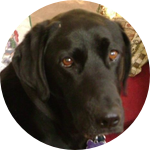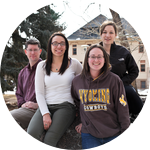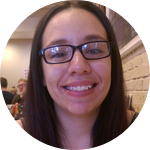About This Project
How similar are you to your neighbors? Do you watch similar TV shows? Have similar prejudices? Research suggests we are very similar to those we live and work near. This means people with similar types of prejudices may cluster together and discriminate in similar ways. Our research will examine the geographic distribution of four distinct types of prejudice against African Americans.Ask the Scientists
Join The DiscussionWhat is the context of this research?
Overt expressions of racial prejudice and discrimination against African Americans seem to have decreased since the 1960s, due in large part to the Civil Rights Movement. However, research has shown that racism has not necessarily declined. Instead, its presentation and expression have merely changed.
Our study accounts for this by measuring prejudice at both the implicit (or unconscious) and explicit (or conscious) level. This allows us to capture four distinct types of prejudice.
We will map the distribution of these four types of prejudice in the United States, becoming the first researchers to do so. This will add to a line of research in personality psychology which has found that similarly minded people tend to cluster themselves geographically.
What is the significance of this project?
Our research focuses on how individuals who exhibit prejudice against African Americans are distributed within the United States. Our study will be able to classify individuals, and thereby their communities, as belonging to one of four distinct categories:
- Modern Racists - Report prejudicial beliefs and also hold unconscious racial biases
- Aversive Racists - Report non-prejudiced beliefs and values, yet show evidence of unconscious racial bias
- Principled Conservatives - Report prejudicial beliefs, yet show no evidence of unconscious racial bias
- Truly Low Prejudice - Report non-prejudiced beliefs and show no evidence of unconscious racial bias
What are the goals of the project?
Our research team will use the data collected from individuals in the United States to answer the following questions:
Short-term Goals:
Does racism differ in its presentation across different areas of the country?
Do people tend to live near others with similar types of prejudice?
Long-term Goals:
Do clusters of prejudice types predict real-world discriminatory behavior within their community, such as:
- Rates of minority criminal convictions
- Rates of false imprisonment of minorities
- Punishment for criminally convicted minorities
- Support for social welfare policies
- Voting patterns in local, state, and national elections
Budget
We have set a primary goal of $1,001 to begin data collection on this study. This goal takes into account the following budgetary items:
- 2,325 participants compensated at $0.36 each ($837)
- 10% commission to Amazon ($84)
- 8% service fee to Experiment ($80)
That's it. All we are asking for is enough to pay our participants and our service providers. We will recruit individuals from all 50 U.S. states using Amazon's Mechanical Turk crowdsourcing platform. Each participant will be paid $0.36 for completing a combination of self-report surveys and reaction-time tasks. This may not seem like a lot of money. However, our past experiences with this platform have led us to believe that it will be perceived as a fair wage within the Mturk community. In addition, Mturk participants are often guided by their interest in research, rather than monetary gain.
Meet the Team
Team Bio
University of Wyoming's Psychology and Law LaboratoryScott Freng
Ph.D., University of Nebraska-Lincoln 2001
M.A., U. of South Dakota, 1998
B.S., Black Hills State University, Spearfish, 1995
Kimberly Schweitzer
M.S., University of Wyoming, 2013
B.S., University of North Dakota, 2010
Victoria Estrada
M.A., University of Texas-El Paso, 2012
B.A., University of Texas-El Paso, 2009
Elizabeth Ferguson
M.S., University of Wyoming, 2014
B.S., Old Dominion University, 2012
Elizabeth Ferguson
The Spatial Psychology research team at the University of Wyoming was formed to pursue research questions related to how psychological constructs are represented in and affected by their geographic space. Members include graduate students and faculty members in Psychology and Law and Social Psychology sub-disciplines.
Lab Notes
Nothing posted yet.
Additional Information
Relevant Publications by Project MembersEstrada, Victoria Christine, Hosch, Harmon M, Ferguson, Elizabeth, & Hall, Jeremiah (2013, March). The Effects of Defendant and Juror Language Use on Sentencing Recommendations. Paper presented at the Annual Conference of the American Psychology-Law Society. Portland, OR.
Freng, Scott & Kehn, Andre (2012): Determining True and False Witnessed Events: Can an Eyewitness-Implicit Association Test Distinguish Between the Seen and Unseen, Psychiatry, Psychology and Law, DOI:10.1080/13218719.2012.735885
Freng, Scott & Willis-Esqueda, Cynthia (2011): A Question of Honor: Chief Wahoo and American Indian Stereotype Activation Among a University Based Sample, The Journal of Social Psychology, 151:5, 577-591
Johns, Michael, Cullum, Jerry, Smith, Tonya, & Freng, Scott (2008): Internal motivation to respond without prejudice and automatic egalitarian goal activation, Journal of Experimental Social Psychology, 44, 1514-1519
Schweitzer, Kimberly, Varley, S., Kehn, A., & Nunez, N. (May 25, 2012). Limits to the Cross-Race Effect: Are Cross-Race Composites Easier to Identify in a Line-Up? Poster presented at the annual Association for Psychological Science conference. Chicago, IL.
Project Backers
- 25Backers
- 104%Funded
- $1,050Total Donations
- $42.00Average Donation



